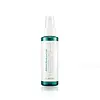What's inside
What's inside
 Key Ingredients
Key Ingredients

 Benefits
Benefits

 Concerns
Concerns

 Ingredients Side-by-side
Ingredients Side-by-side

Water
Skin ConditioningAlcohol
AntimicrobialGlycerin
HumectantPentylene Glycol
Skin ConditioningMelaleuca Alternifolia Leaf Extract
PerfumingPyrus Malus Fruit Water
MaskingSodium Hyaluronate
HumectantCodium Tomentosum Extract
Skin ProtectingEcklonia Cava Extract
Skin ConditioningEnteromorpha Compressa Extract
Skin ProtectingGelidium Cartilagineum Extract
Skin ProtectingLaminaria Japonica Extract
Skin ProtectingMacrocystis Pyrifera Extract
Skin ConditioningMelaleuca Alternifolia Leaf Oil
AntioxidantPearl Extract
AntioxidantButylene Glycol
HumectantPropanediol
Solvent1,2-Hexanediol
Skin ConditioningCholeth-24
EmulsifyingSodium Lactate
BufferingMenthyl Lactate
MaskingSalicylic Acid
MaskingMenthyl PCA
HumectantEthyl Menthane Carboxamide
TonicPolyglutamic Acid
Skin ConditioningLactobionic Acid
BufferingCaprylyl Glycol
EmollientPotassium Benzoate
PreservativeSodium Benzoate
MaskingWater, Alcohol, Glycerin, Pentylene Glycol, Melaleuca Alternifolia Leaf Extract, Pyrus Malus Fruit Water, Sodium Hyaluronate, Codium Tomentosum Extract, Ecklonia Cava Extract, Enteromorpha Compressa Extract, Gelidium Cartilagineum Extract, Laminaria Japonica Extract, Macrocystis Pyrifera Extract, Melaleuca Alternifolia Leaf Oil, Pearl Extract, Butylene Glycol, Propanediol, 1,2-Hexanediol, Choleth-24, Sodium Lactate, Menthyl Lactate, Salicylic Acid, Menthyl PCA, Ethyl Menthane Carboxamide, Polyglutamic Acid, Lactobionic Acid, Caprylyl Glycol, Potassium Benzoate, Sodium Benzoate
Water
Skin ConditioningMelaleuca Alternifolia Leaf Extract
PerfumingGlycerin
HumectantGlycereth-26
HumectantBetaine
Humectant1,2-Hexanediol
Skin ConditioningGluconolactone
Skin ConditioningTromethamine
BufferingHydroxyacetophenone
AntioxidantPanthenol
Skin ConditioningChlorella Vulgaris Extract
Skin ConditioningOctyldodeceth-16
EmulsifyingButylene Glycol
HumectantCentella Asiatica Extract
CleansingPearl Extract
AntioxidantDisodium EDTA
Melaleuca Alternifolia Leaf Oil
AntioxidantSodium Hyaluronate
HumectantLaminaria Saccharina Extract
Skin ProtectingSpirulina Platensis Extract
Skin ProtectingPlankton Extract
Skin ConditioningHydrolyzed Collagen
EmollientEthylhexylglycerin
Skin ConditioningCitric Acid
BufferingBetaine Salicylate
AntimicrobialWater, Melaleuca Alternifolia Leaf Extract, Glycerin, Glycereth-26, Betaine, 1,2-Hexanediol, Gluconolactone, Tromethamine, Hydroxyacetophenone, Panthenol, Chlorella Vulgaris Extract, Octyldodeceth-16, Butylene Glycol, Centella Asiatica Extract, Pearl Extract, Disodium EDTA, Melaleuca Alternifolia Leaf Oil, Sodium Hyaluronate, Laminaria Saccharina Extract, Spirulina Platensis Extract, Plankton Extract, Hydrolyzed Collagen, Ethylhexylglycerin, Citric Acid, Betaine Salicylate
Ingredients Explained
These ingredients are found in both products.
Ingredients higher up in an ingredient list are typically present in a larger amount.
1,2-Hexanediol is a synthetic liquid and another multi-functional powerhouse.
It is a:
- Humectant, drawing moisture into the skin
- Emollient, helping to soften skin
- Solvent, dispersing and stabilizing formulas
- Preservative booster, enhancing the antimicrobial activity of other preservatives
Butylene Glycol (or BG) is used within cosmetic products for a few different reasons:
Overall, Butylene Glycol is a safe and well-rounded ingredient that works well with other ingredients.
Though this ingredient works well with most skin types, some people with sensitive skin may experience a reaction such as allergic rashes, closed comedones, or itchiness.
Learn more about Butylene GlycolGlycerin is already naturally found in your skin. It helps moisturize and protect your skin.
A study from 2016 found glycerin to be more effective as a humectant than AHAs and hyaluronic acid.
As a humectant, it helps the skin stay hydrated by pulling moisture to your skin. The low molecular weight of glycerin allows it to pull moisture into the deeper layers of your skin.
Hydrated skin improves your skin barrier; Your skin barrier helps protect against irritants and bacteria.
Glycerin has also been found to have antimicrobial and antiviral properties. Due to these properties, glycerin is often used in wound and burn treatments.
In cosmetics, glycerin is usually derived from plants such as soybean or palm. However, it can also be sourced from animals, such as tallow or animal fat.
This ingredient is organic, colorless, odorless, and non-toxic.
Glycerin is the name for this ingredient in American English. British English uses Glycerol/Glycerine.
Learn more about GlycerinMelaleuca Alternifolia Leaf Extract comes from the Tea Tree, Melaleuca alternifolia, Myrtaceae. This tea tree is native to Australia.
Tea Leaf extract contains antimicrobial and anti-acne properties.
This ingredient has perfuming properties and contains linalool and limonene. These fragrance and terpinen components can cause skin sensitivity.
Learn more about the benefits of Tea Tree Oil here.
Learn more about Melaleuca Alternifolia Leaf ExtractThis tea tree oil comes from the leaves of the Tea Tree plant. Tea tree oil has antioxidant, anti-inflammatory, and antimicrobial properties.
According to the book Journal of Profiles of Drug Substances, tea tree helps in reducing acne-causing bacteria such as Propionibacterium acnes. This is due to the Terpinen components of tea tree oil.
Tea tree may cause sensitivity and irritation for some people. This oil naturally contains fragrance such as linalool and limonene.
However, research shows irritation usually occurs when using pure tea tree oil and not in cosmetic products.
Tea tree oil was found to help relieve the symptoms of psoriasis in one study.
Tea tree oil is toxic when ingested. Another study showed it to caused damage to the nervous system of dogs and cats when applied to their skin or given orally.
Learn more about Melaleuca Alternifolia Leaf OilPearl Extract comes from, well, pearls. Pearls are harvested from oysters.
Pearls are rich in amino-acids, magnesium, potassium, calcium, and antioxidant compounds.
Two antioxidants found in pearls include: superoxide dismutase (SOD) and glutathione. Antioxidants aid in reducing the signs of aging.
Studies show pearls can aid in wound healing.
Pearls are harvested from oysters. To be vegan, an ingredient cannot be from an animal source.
Learn more about Pearl ExtractSodium Hyaluronate is hyaluronic acid's salt form. It is commonly derived from the sodium salt of hyaluronic acid.
Like hyaluronic acid, it is great at holding water and acts as a humectant. This makes it a great skin hydrating ingredient.
Sodium Hyaluronate is naturally occurring in our bodies and is mostly found in eye fluid and joints.
These are some other common types of Hyaluronic Acid:
Learn more about Sodium HyaluronateWater. It's the most common cosmetic ingredient of all. You'll usually see it at the top of ingredient lists, meaning that it makes up the largest part of the product.
So why is it so popular? Water most often acts as a solvent - this means that it helps dissolve other ingredients into the formulation.
You'll also recognize water as that liquid we all need to stay alive. If you see this, drink a glass of water. Stay hydrated!
Learn more about Water